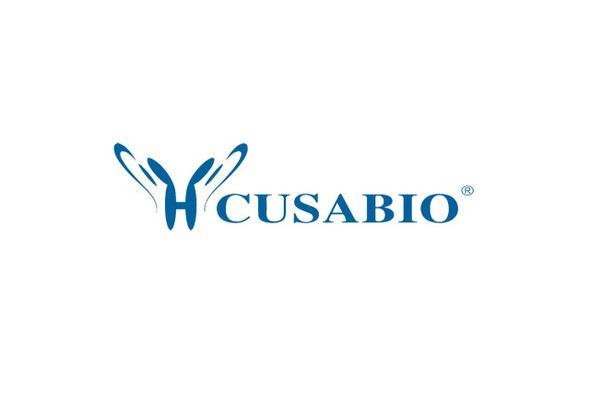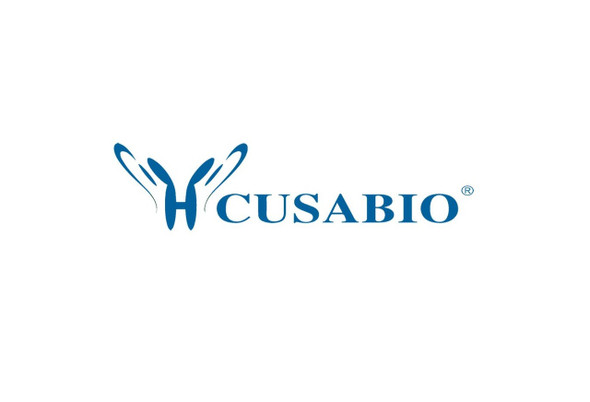Cusabio Human Recombinants
Recombinant Human Hepatitis A virus cellular receptor 2 (HAVCR2), partial | CSB-YP010145HU
- SKU:
- CSB-YP010145HU
- Availability:
- 25 - 35 Working Days
Description
Recombinant Human Hepatitis A virus cellular receptor 2 (HAVCR2), partial | CSB-YP010145HU | Cusabio
Alternative Name(s): T-cell immunoglobulin and mucin domain-containing protein 3 ;TIMD-3T-cell immunoglobulin mucin receptor 3 ;TIM-3T-cell membrane protein 3
Gene Names: HAVCR2
Research Areas: Immunology
Organism: Homo sapiens (Human)
AA Sequence: SEVEYRAEVGQNAYLPCFYTPAAPGNLVPVCWGKGACPVFECGNVVLRTDERDVNYWTSRYWLNGDFRKGDVSLTIENVTLADSGIYCCRIQIPGIMNDEKFNLKLVIKPAKVTPAPTRQRDFTAAFPRMLTTRGHGPAETQTLGSLPDINLTQISTLANELRDSRLANDLRDSGATIRIG
Source: Yeast
Tag Info: N-terminal 6xHis-tagged
Expression Region: 22-202aa
Sequence Info: Extracellular Domain
MW: 22 kDa
Purity: Greater than 90% as determined by SDS-PAGE.
Relevance: Regulates macrophage activation. Inhibits T-helper type 1 lymphocyte (Th1)-mediated auto- and alloimmune responses and promotes immunological tolerance. May be also involved in T-cell homing. Receptor for LGALS9.
Reference: Th1-specific cell surface protein Tim-3 regulates macrophage activation and severity of an autoimmune disease.Monney L., Sabatos C.A., Gaglia J.L., Ryu A., Waldner H., Chernova T., Manning S., Greenfield E.A., Coyle A.J., Sobel R.A., Freeman G.J., Kuchroo V.K.Nature 415:536-541(2002)
Storage: The shelf life is related to many factors, storage state, buffer ingredients, storage temperature and the stability of the protein itself. Generally, the shelf life of liquid form is 6 months at -20?/-80?. The shelf life of lyophilized form is 12 months at -20?/-80?.
Notes: Repeated freezing and thawing is not recommended. Store working aliquots at 4? for up to one week.
Function: Cell surface receptor implicated in modulating innate and adaptive immune responses. Generally accepted to have an inhibiting function. Reports on stimulating functions suggest that the activity may be influenced by the cellular context and/or the respective ligand
Involvement in disease: May be involved in T-cell exhaustion associated with chronic viral infections such as with human immunodeficiency virus (HIV) and hepatitic C virus (HCV).
Subcellular Location: Membrane, Single-pass type I membrane protein, Cell junction
Protein Families: Immunoglobulin superfamily, TIM family
Tissue Specificity: Expressed in T-helper type 1 (Th1) lymphocytes. Expressed on regulatory T (Treg) cells after TCR stimulation. Expressed in dendritic cells and natural killer (NK) cells. Expressed in epithelial tissues. Expression is increased on CD4+ and CD8+ T-cells in chronic hepatitis C virus (HCV) infection. In progressive HIV-1 infection, expression is up-regulated on HIV-1-specific CD8 T-cells.
Paythway:
Form: Liquid or Lyophilized powder
Buffer: If the delivery form is liquid, the default storage buffer is Tris/PBS-based buffer, 5%-50% glycerol. If the delivery form is lyophilized powder, the buffer before lyophilization is Tris/PBS-based buffer, 6% Trehalose, pH 8.0.
Reconstitution: We recommend that this vial be briefly centrifuged prior to opening to bring the contents to the bottom. Please reconstitute protein in deionized sterile water to a concentration of 0.1-1.0 mg/mL.We recommend to add 5-50% of glycerol (final concentration) and aliquot for long-term storage at -20?/-80?. Our default final concentration of glycerol is 50%. Customers could use it as reference.
Uniprot ID: Q8TDQ0
HGNC Database Link: HGNC
UniGene Database Link: UniGene
KEGG Database Link: KEGG
STRING Database Link: STRING
OMIM Database Link: OMIM









